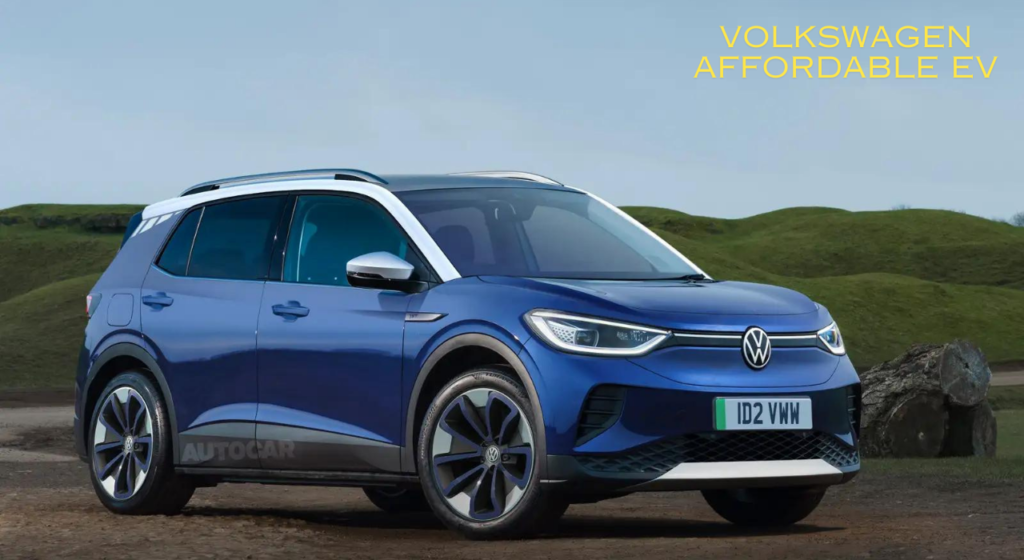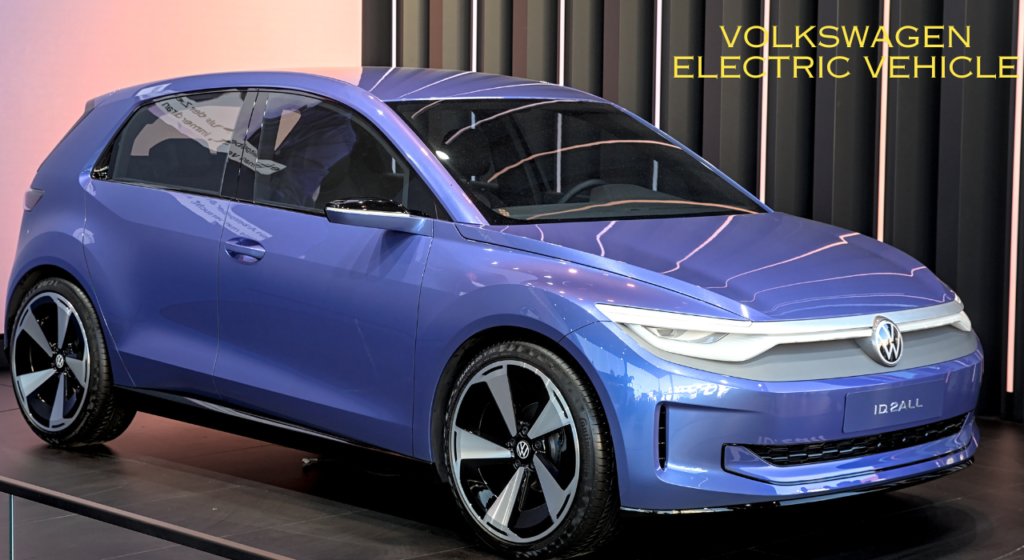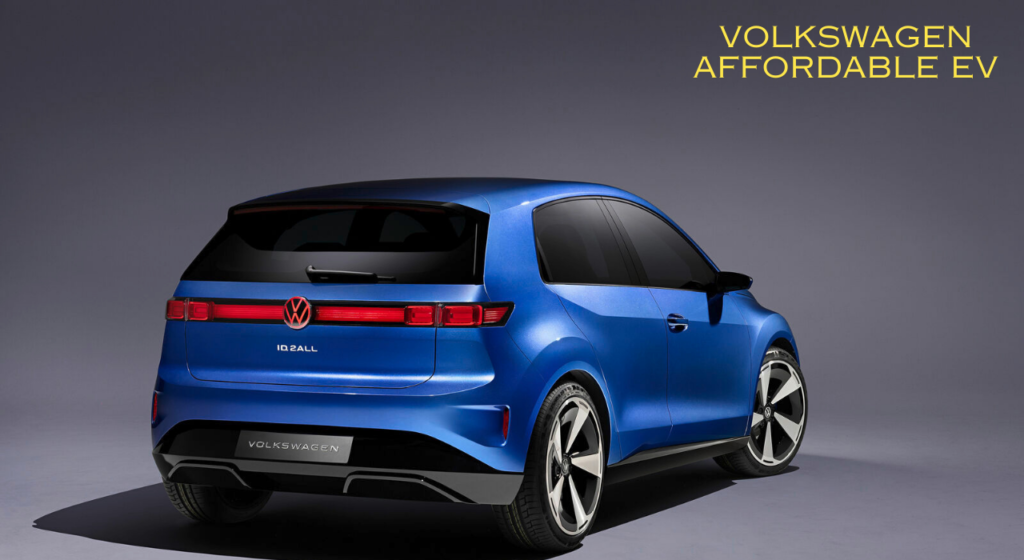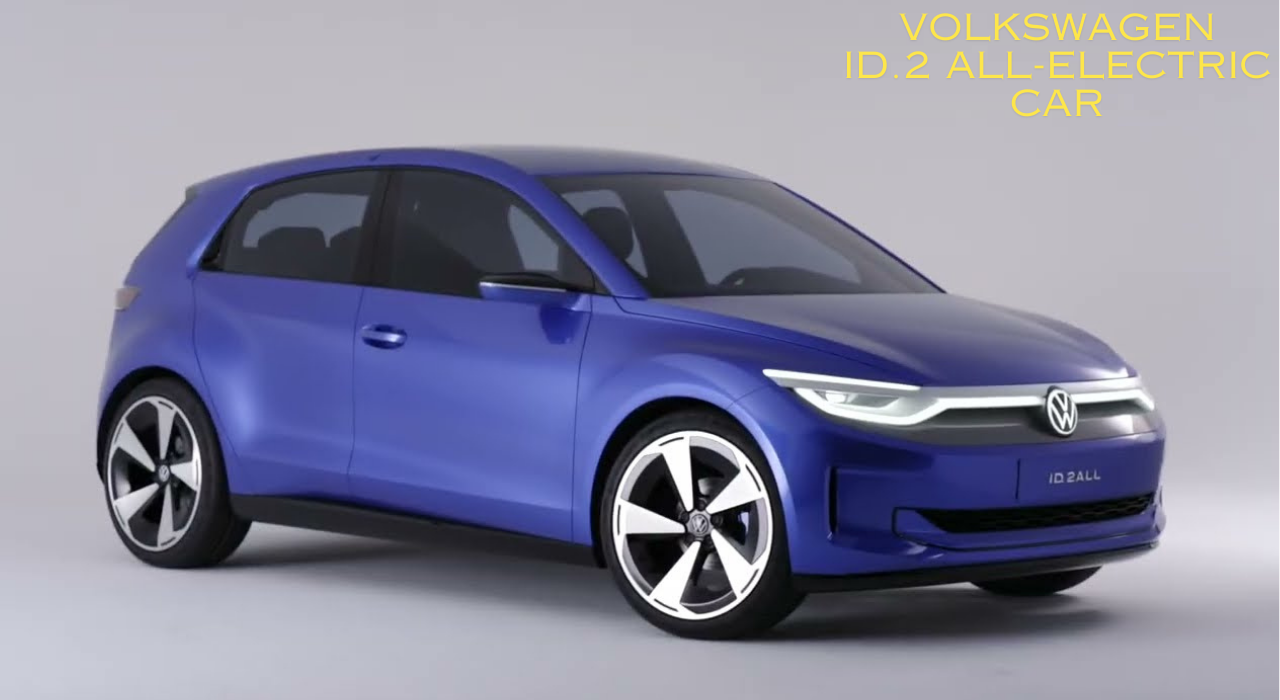Volkswagen’s Affordable EV Faces Production Delay
If you’ve been eagerly anticipating the arrival of Volkswagen’s budget-friendly electric car, the ID.2, priced at $27,000 (€25,000), there’s a bit of disappointing news. According to a report from local media sources, Volkswagen has decided to postpone the volume production of the affordable electric vehicle. This delay may extend the wait for those eager to get their hands on the ID.2. Stay tuned for further updates as Volkswagen addresses the production timeline for this much-anticipated electric offering.

Exciting plans for Volkswagen’s ID.2 electric vehicle have hit a slight roadblock, as a recent report from the German magazine auto motor und sport indicates a delay in the mass production schedule. Originally slated for 2025, the production is now expected to commence in May 2026.
The shift in timeline is attributed to the European Union’s decision not to update existing Euro 6 emissions limits for cars. This decision prompted Volkswagen, along with other European automakers, to reassess their production strategies, especially concerning small internal combustion engine (ICE) cars. The initial plan was to phase out the production of these smaller ICE cars by the end of the decade.
VW Passenger Cars CEO, Thomas Shaefer, clarified that the decision to delay production is a cost-cutting measure. Shaefer explained that only 80% of the maximum forecasted sales volume for the new ID.2 model will be planned for production. This adjustment is a response to overcapacity, as new orders experienced a decline last year. Shaefer assured that if the demand for the new model surpasses expectations, Volkswagen is prepared to add extra shifts to meet the increased demand. Stay tuned for further developments as Volkswagen navigates the evolving landscape of electric vehicle production.

Volkswagen’s ID.2 EV Production Faces Delay Amid Regulatory Landscape
In a strategic shift prompted by the decision of EU countries not to update existing Euro 6 emissions limits for cars, Volkswagen has adjusted its production plans for the ID.2 all-electric vehicle. While the affordable EV is still anticipated to be unveiled in 2025, mass production is now expected to commence in May 2026.
This decision allows automakers, including Volkswagen, to continue the production of gas-powered vehicles without the initially planned upgrades. Despite the delay in mass production, the ID.2 is likely to see a limited number of models produced in its first year.
The ID.2, unveiled as a concept last March, is based on VW’s new MEB Entry platform, offering up to 450 km (280 mi) of WLTP range. Andreas Mindt, head designer at VW brand cars, highlighted the ID.2’s significance, stating that it provides a sneak peek into Volkswagen’s new design language. Recent images of the ID.2’s “spacious” interior showcase notable features, including a new rotary knob that allows users to switch between drive modes, such as “Classic” and “Vintage.” The Classic mode draws inspiration from the Beetle era, while the Vintage mode adds a nostalgic touch to the driving experience. Stay tuned for further updates as Volkswagen navigates the evolving landscape of electric vehicle production and design innovation.

Volkswagen’s ID.2all: An Affordable and Spacious Electric Offering
Volkswagen is gearing up for the launch of its ID.2all electric vehicle, described as “spacious like a Golf” and “affordable like a Polo.” The company positions this model as one of ten new VW EVs set to hit the market by 2026, with an additional SUV version slated for release the following year.
Teased last month, the electric SUV showcases familiar “ID” design features, including a distinctive lightbar upfront and a rear roof spoiler. Its design hints at a resemblance to the Volvo EX30, with Volvo’s affordable electric SUV making waves in the US market.
While regulatory changes have granted VW and other automakers the flexibility to delay EV production, it also raises concerns about falling behind in the electric vehicle race. Tesla’s Model Y, the best-selling vehicle (gas or electric), continues to dominate the market. With Tesla and other players, especially Chinese EV makers, scaling up production, Volkswagen’s decision to postpone production could potentially impact its market share in the coming years.
The electric vehicle landscape is evolving rapidly, with several automakers launching or planning to release affordable EVs. Stellantis, for instance, introduced the Citroen e-C3 with a starting price of 23,300 euros ($25,500), with an even cheaper version expected in 2025. Chinese automakers like BYD are also expanding into overseas markets, including Europe, with low-cost electric models.
Volkswagen’s choice to push back production timelines may pose challenges in a competitive market where other major players like Ford, GM, Hyundai, and Volvo are doubling down on their commitment to gain market share as the automotive industry undergoes a significant shift toward electric vehicles. Stay tuned for updates as VW navigates this dynamic landscape.
The Elusive $25,000 Tesla: Musk’s Vision Delayed
For years, rumors of a Tesla priced at around $25,000 have circulated, with Elon Musk’s promises during Battery Day in September 2020 fueling expectations. However, as we ushered in 2024, it became apparent that Tesla had yet to deliver on this promise, and the lack of an affordable electric vehicle in Tesla’s lineup had repercussions.
In a recent Bloomberg Hyperdrive article, correspondent Craig Trudell highlighted the impact of this delay on Tesla’s global electric car sales standing. He noted that, with China’s BYD emerging as the new leader in EVs, Tesla’s ambitious $25,000 model was notably absent from its lineup.
Trudell delved into Walter Isaacson’s biography of Elon Musk, revealing surprising details about Musk’s resistance to the $25,000 vehicle. Despite Musk’s early vision of offering a diverse range of models, including affordable family cars, the company currently has only four consumer vehicles to choose from. Even with the addition of the Cybertruck, which debuted with a hefty price tag exceeding $120,000, Tesla falls short of its original plans.
The biography depicted Musk’s resistance to the $25,000 model as rooted in his fixation on building self-driving robotaxis. Isaacson revealed that Musk insisted on designing a car without a steering wheel or pedals, emphasizing Tesla’s commitment to full autonomy. Musk’s vision for an autonomous, affordable Tesla faced delays as he urged designers to create a car aligned with his unwavering focus on autonomy.
The article suggests that Musk’s divergence from the $25,000 model might have been a strategic misstep, especially considering the growing competition in the electric vehicle market. As other automakers offer affordable alternatives, Tesla’s delay in delivering on its promises could impact its market standing. The journey to bring the $25,000 Tesla to reality appears to be more complex than initially envisioned, with Musk’s ambitious robotaxi dreams influencing the timeline. Stay tuned for updates on Tesla’s endeavors in the rapidly evolving electric vehicle landscape.
